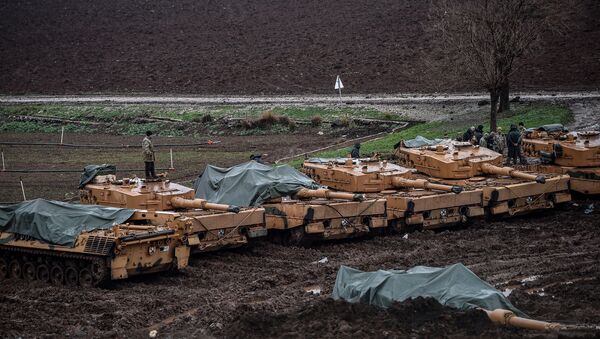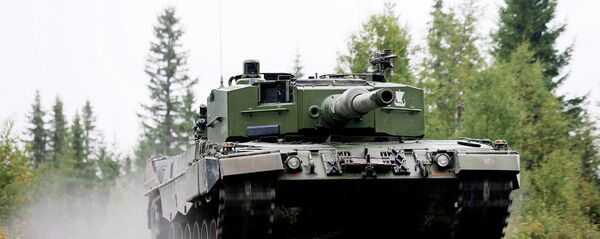Military experts point to the vulnerable ammunition compartment as the Leopard-2’s weakest point.
“It has been proven once again that the much-touted Leopard-2 tanks have a fatal defect, as most of their onboard ammunition is stored in the forward left section with weak armor protection on both sides,” specialists at Russia’s center of Strategy and Technology Analysis wrote after watching a video of the destroyed Leopard posted by the Kurdish militants.
They added that the first cases of Leopard-2A4 tanks being destroyed as a result of their onboard ammunition blowing up pertain to tanks the Turkish army lost when fighting Daesh forces near Syria’s al-Bab in December 2016.
The Fagots are still being used by the armies of more than 30 countries around the world
Ankara launched an offensive with the support of the Free Syrian Army forces in the Syrian Kurdish-dominated city of Afrin on January 20, aiming to protect its borders from what they call a "terrorist army," referring to Kurdish militant groups in the area.
The operation, dubbed Olive Branch, primarily targets the US-backed YPG, which are considered by Ankara to be affiliates of the Kurdistan Workers' Party (PKK), designated as a terrorist organization in Turkey and several other countries.
Official Damascus has already condemned the operation as a crude violation of its borders and international laws.
Russia has expressed concern about the humanitarian situation in the region and calls for the preservation of Syria’s territorial integrity.
READ MORE: Casualties Mount on Day Five of Turkey's Operation Olive Branch in North Syria





